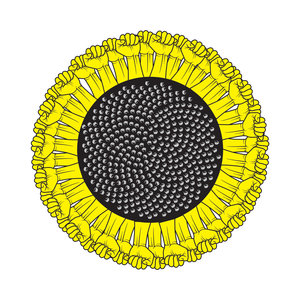Digging Deeper Than Freshly Dug Potatoes – ANDES-Potato Park-CIP Agreement
There's always a story lurking somewhere around me. Recently, I stopped by my garden plot at the community garden. It's the end of the season and I wanted to assess what had to be done to close it. I didn't plan to do any work, and was not dressed for any. I pulled up a few small plants, my neighbor saw me and hollered "You can dig as much potatoes as you can."
I never grew potatoes which means I never dug them either. All around me though, my neighbors had potatoes. Evidently they grow well there. Always looking for knowledge and content to write about, I said "Great, thanks!"
He asked me if ever dug them before, I said no and he said it wasn't a big deal. He didn't have fork, just a shovel, he demonstrated what to do and handed me the shovel. It's an easy thing really. You just have to be careful. You dig a little dirt, find the potato and brush off the dirt. Considering I had sandals on, and a nice pair of short pants, it was going to be a short experience.
I quickly dug about 5 pounds, and while digging I realized that I could have fresh roasted potatoes is less then an hour. I took my potatoes, thanked my neighbor, and was on my way. I have to say, the batch that I roasted were incredible. Like anything else that is fresh, the taste and texture were sublime.
I moved onto gnocchi. I just had to. Fresh potatoes, some King Arthur flour and in a short amount of time I had pillows of heaven. Shortly after, I cooked a butternut squash that another neighbor gave me, had the last of the tomatoes from my garden, and some of the frozen gnocchi. An impromptu dinner that was grown within 400 feet of each other. It doesn't get any better then that.
When I decided to write about this, naturally I had to research heirloom potatoes. In the course of digging for information, I came across the Andes-Potato Park-CIP Agreement. From the article that precedes the agreement;
LONDON, Jan 18 (IPS) - Peru gave the world the potato, and the potato now offers indigenous people around the world a new recipe for securing their rights.A new agreement between six indigenous communities and the International Potato Centre in Cusco, Peru, heart of the old Inca civilisation in the Andes mountains of Latin America, recognises the right of these communities over the unique potato strains that they have developed and grown.
So what does this mean? More from the article;
The new agreement "means that Andean communities can unlock the potato gene bank and repatriate biological diversity to farming communities and the natural environment for local and global benefit," ANDES said in a statement Tuesday.Though excluded and often oppressed, indigenous peoples are the traditional custodians of biodiversity, and this agreement recognises that "the conservation, sustainable use and development of maximum agro-biodiversity is of vital importance in order to improve the nutrition, health and other needs of the growing global population," ANDES says.
How GREAT is that? Except for the part about indigenous people being excluded and often oppressed, that's tragic. This agreement reclaims their rights to a food that they have cultivated and introduced to the world. They are the original stewards of potatoes.
This agreement signed in 2005 doesn't give them the right to patent the genes, it's just the opposite. It protects their rights from interlopers who would try to do that. The agreement was sign by six Peruvian indigenous communities, and the International Potato Center, an agricultural research center based in Lima, Peru, which is the sponsor of the Potato Park;
Located in Pisaq in the Sacred Valley of Peru, the Potato Park is a one of the few conservation initiatives in the world where the local people are managing and protecting local genetic resources and traditional knowledge about their health, food, and agriculture. The Park covers more than 12,000 ha between 3,150 and 5,000 masl. About 600 varieties of native potatoes grow in the Park, most of them unique to this habitat. Six Quechua communities live in the Park. Some had been struggling for land tenure for years until the Quechua-Aymara Association for Sustainable Communities (ANDES in Spanish) brought them together in this in-situ conservation project.
I'm amazed and inspired by this. I want to see this place. I have to. What better example of what I want to encourage people to do within their families? There will be more written about this I'm sure. For now though, a story that started out innocently enough with a brief visit to my garden plot and spontaneous potato dig will have to do.
